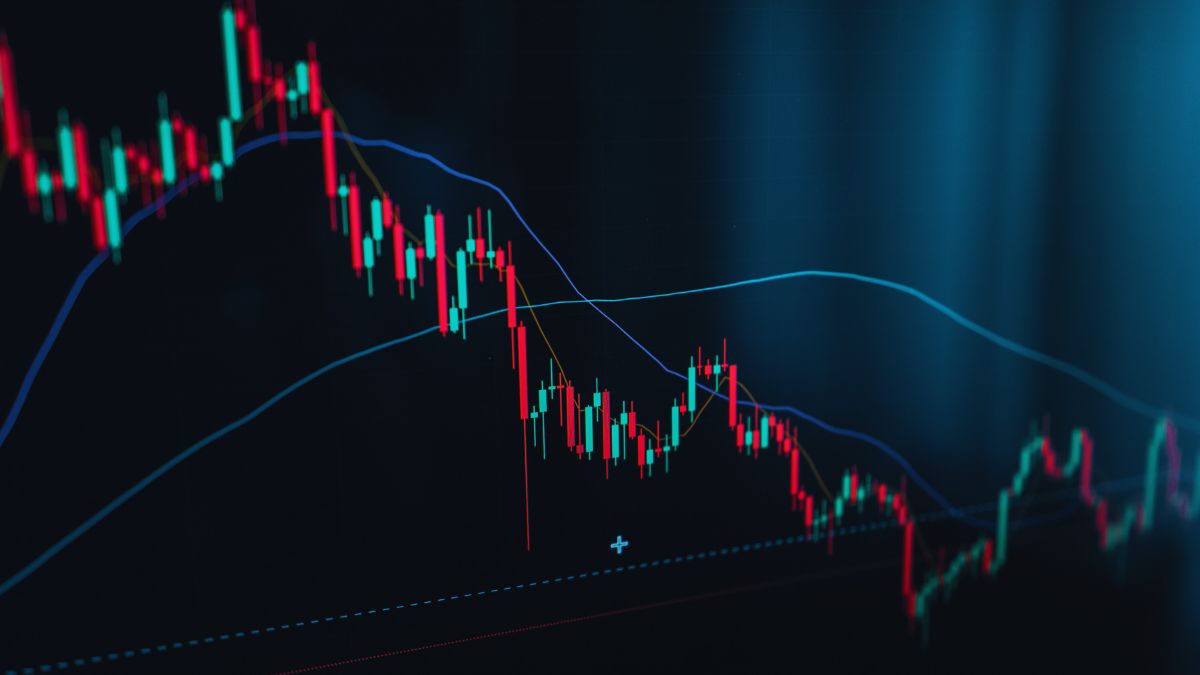Imagine waking up to discover your crypto portfolio has dropped half its value over night; where does all that money disappear? If Crypto Crashes Where Does the Money Go? is a real concern for everyone involved in digital currencies, not only a theoretical one.
Investigating the purposes of exchanges and the effects of regulatory systems will help you to understand how these parts affect market stability and what happens to your hard-earned money in a downturn. By the time this article ends, you will have acquired the necessary expertise to negotiate the volatile waters of cryptocurrencies!
Rising in great popularity recently, cryptocurrencies draw millions of investors globally. Still, the crypto market is quite unstable; hence crashes are not unusual.
Many investors ask themselves, when the value of cryptocurrencies collapses, where the money goes. The idea of market crashes, the mechanics of bitcoin trading, and what happens to the money when crypto values fall will be discussed in this paper.
If Crypto Crashes Where Does the Money Go?

A market fall results from sharply declining asset values over a brief period. Regarding cryptocurrencies, this can result from things like macroeconomic patterns, security breaches, investor fear, or legislative crackdowns. The crypto market runs around the clock, unlike conventional financial markets; hence, price declines could occur at any moment.
The Illusion of Lost Money
People often argue that “money is lost,” when crypto collapses, but in fact money does not vanish into thin air. It instead experiences a redistribution process. Here’s the process:
1. Paper Gains vs. Realized Losses
Many investors notice a marked rise in the value of their portfolio before a crash. These are merely paper gains, hence until the assets are sold the profits are only theoretical. These paper profits disappear as the market falls, but real money is not always lost unless an investor sells for less.
2. Buyer-Seller Dynamics
The operation of the crypto market is supply-and-demand-driven. Each selling has to have a buyer. Panic sellers may dump their assets at a loss as prices fall, but someone else is buying at a lesser price. This implies that although some investors lose money, buying cryptocurrencies at a bargain could make others profitable.
3. Liquidity and Exchange Holdings
Liquidity dries out as buyers go rare during a crash. Many crypto-owning investors who wish to sell may not find purchasers at their intended price, which would cause more price reductions. Additionally important are crypto exchanges since they enable trade and maintain reserves of assets.
Extreme crashes could cause exchanges to freeze withdrawals or have liquidity issues, therefore aggravating the market volatility.
4. Market Capitalization Decline
The total market capitalization of cryptocurrencies decreases during a crash. Market cap is calculated as:
Market Cap = Price per Coin × Total Circulating Supply
When the price drops significantly, the total market cap shrinks. However, this does not mean that cash disappears—it means that the perceived value of the assets has declined.
5. Hedge Funds and Institutional Traders
To trade crypto, big players include institutional traders and hedge funds may leverage and derivatives. Leveraged positions may be sold during a crash, therefore triggering more price declines. While some of the losses might be absorbed by these major players, others gain by short-selling crypto assets.
6. Exit to Stable Assets
When a crash strikes some investors migrate their money to stable assets, including stablecoins (USDT, USDC) or fiat currencies (USD, INR). This capital flight lowers the demand for volatile cryptocurrencies, therefore hastening the price fall.
What Happens to Investor Money?
- Lost Profits: If an investor bought Bitcoin at $60,000 and the price drops to $30,000, their potential profits are wiped out unless they sell at a loss.
- Transferred Wealth: When some investors sell in panic, others buy at lower prices, meaning the wealth is transferred rather than lost.
- Exchange and Liquidation Losses: Crypto exchanges may suffer losses due to liquidations, fraud, or technical failures.
- Reinvestment in Other Assets: Some investors withdraw from crypto and invest in traditional assets like stocks or gold.
Also Read:
- Top 10 Crypto Exchanges 2024: Best Places to Buy, Sell, and Trade Crypto
- 5 Things to Know Before Investing in Cryptocurrency (2025)
Conclusion
Money moves rather than disappears as cryptocurrencies fall. While some investors acquire at a discount and win, others lose since they sell at lesser rates. Knowing market cycles, avoiding panic selling, and having a strong investing plan will assist investors negotiate the volatility of the cryptocurrency market.
In the end, investments in cryptocurrencies contain hazards; hence, knowledge of market dynamics can significantly affect financial decisions.
FAQ
1. What happens to the value of cryptocurrencies when they crash?
A cryptocurrency’s market value decreases greatly upon a crash. Consequently, the total market capitalization falls and the value of the money spent on those cryptocurrencies is basically lost. Still, this does not imply the money vanishes totally.
2. Where does the money go during a cryptocurrency crash?
The money in a cryptocurrency crash moves from one person to another rather than disappearing. While individuals who buy during the crisis could profit should the bitcoin recover in the future, investors who sell at a loss lose their money.
3. Do investors lose all their money when crypto crashes?
Not absolutely either. Those that hang onto their cryptocurrencies through a downturn might not suffer a loss until they sell. Should they decide to hang on, they could recoup their losses should the market show future recovery.
4. Is there a difference between a crash and a correction in crypto?
Indeed, a crash is a quick and drastic drop in prices; a correction is a more moderate drop following a price rise. While collapses could cause panic selling, corrections are sometimes viewed as healthy changes in the market.
5. What role do exchanges play during a crypto crash?
Selling and purchasing bitcoins find venues on exchanges. They might see more activity during a crash and some exchanges may stop trading to stop more losses. The liquidity of the exchange can influence the movement of prices during a crisis.
6. Can stablecoins lose value during a crypto crash?
Usually linked to a fiat money, stablecoins are made to keep a constant value. Even stablecoins, however, might fluctuate in value under severe market conditions—especially if the underlying assets lose value or if faith in the stablecoin suffers.
7. What happens to the liquidity in the market during a crash?
Due to how many investors hurry to sell their assets during a crisis, liquidity usually declines. This might cause purchase and sell prices to vary more and complicate selling assets without running major losses.
8. How does market sentiment affect the value of crypto during a crash?
The value of cryptocurrencies depends much on market attitude. Mass sales resulting from fear and panic could aggravate a crash. On the other hand, some may buy in at reduced prices if investors think the crisis is only transient, therefore helping to stabilize the market.
9. Are there any safe havens for crypto investors during a crash?
Although there are no assured safe havens, some investors might decide to safeguard their cash during a crash by transferring their money into stablecoins or fiat currencies. Some investors might also take traditional asset diversification into mind, such as equities or gold.
10. What should investors do during a cryptocurrency crash?
Investors ought to consider their own investing strategy, risk tolerance, and financial circumstances. If one believes in the principles of the cryptocurrency they possess, it would be advisable to resist panic selling and think about long-term holding. Speaking with a financial adviser might also offer direction depending on particular situation.

